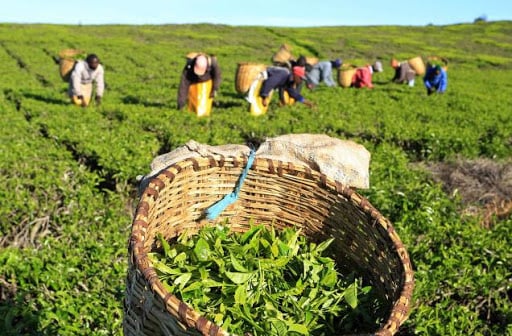June 21, 2025 | 02:19 GMT +7
June 21, 2025 | 02:19 GMT +7
Hotline: 0913.378.918
June 21, 2025 | 02:19 GMT +7
Hotline: 0913.378.918

The price rise supported the beleaguered Indian tea industry, but trimmed exports.
The price rise supported the beleaguered Indian tea industry, which was struggling with rising production costs, but trimmed exports from the south Asian country.
In 2020, India produced 1255.60 million kilograms of tea, down 9.7% from a year ago as floods damaged tea gardens in the northeastern state of Assam - which accounts for over half of India’s production - where output had already been cut by labour movement restrictions to contain the coronavirus outbreak.
Lower output lifted average tea prices in 2020 by 31% from a year ago to a record 184.69 rupees ($2.53) a kg, according to data compiled by the Tea Board.
Higher prices though, trimmed India’s tea exports, said an exporter in the eastern Indian city of Kolkata.
“Indian prices jumped but prices in competing Sri Lanka and Kenya didn’t rise. Buyers moved to these two countries,” the exporter, who declined to be named, said.
India’s tea exports in the first 11 months of 2020 fell 18.2% from the previous year ago 187.92 million kg, it said.
India, the world’s second-biggest tea producer, exports CTC (crush-tear-curl) grade mainly to Egypt and Britain, with the orthodox variety shipped to Iraq, Iran and Russia.
In the last few months, the key tea producing north-eastern part of the country has received good rainfall and that would lead to higher output in 2021, said Sujit Patra, secretary at Indian Tea Association.
“We are expecting better quality crop this year. Our exports are also expected to rise as key importing countries are recovering from COVID-19 that limited their purchases last year,” Patra said.
Reuters

(VAN) Poultry production in Poland, which has only started recovering from devastating bird flu outbreaks earlier this year, has been hit by a series of outbreaks of Newcastle disease, with the veterinary situation deteriorating rapidly.

(VAN) Extensive licensing requirements raise concerns about intellectual property theft.

(VAN) As of Friday, a salmonella outbreak linked to a California egg producer had sickened at least 79 people. Of the infected people, 21 hospitalizations were reported, U.S. health officials said.

(VAN) With the war ongoing, many Ukrainian farmers and rural farming families face limited access to their land due to mines and lack the financial resources to purchase needed agricultural inputs.

(VAN) Vikas Rambal has quietly built a $5 billion business empire in manufacturing, property and solar, and catapulted onto the Rich List.

(VAN) Available cropland now at less than five percent, according to latest geospatial assessment from FAO and UNOSAT.

(VAN) Alt Carbon has raised $12 million in a seed round as it plans to scale its carbon dioxide removal work in the South Asian nation.